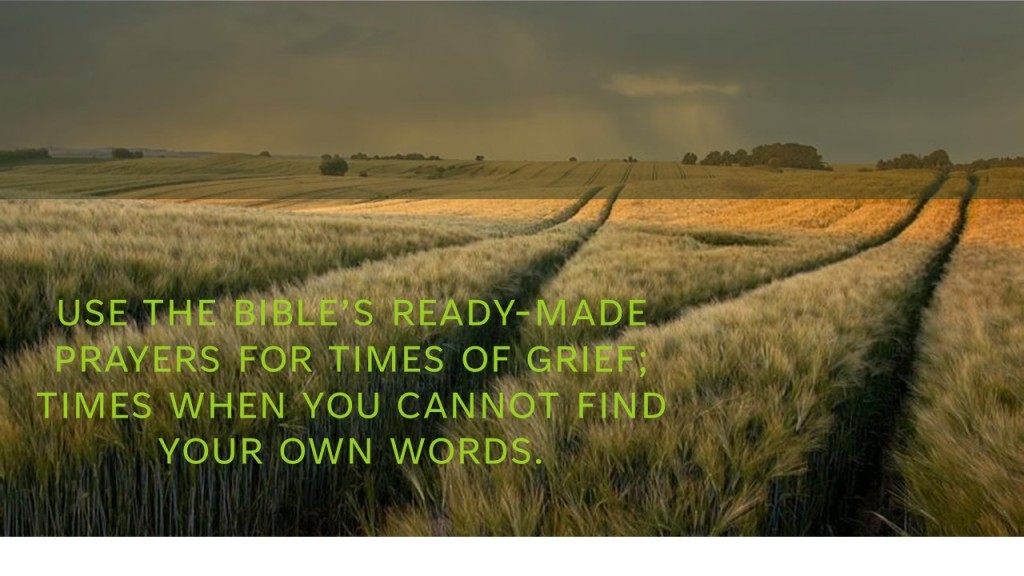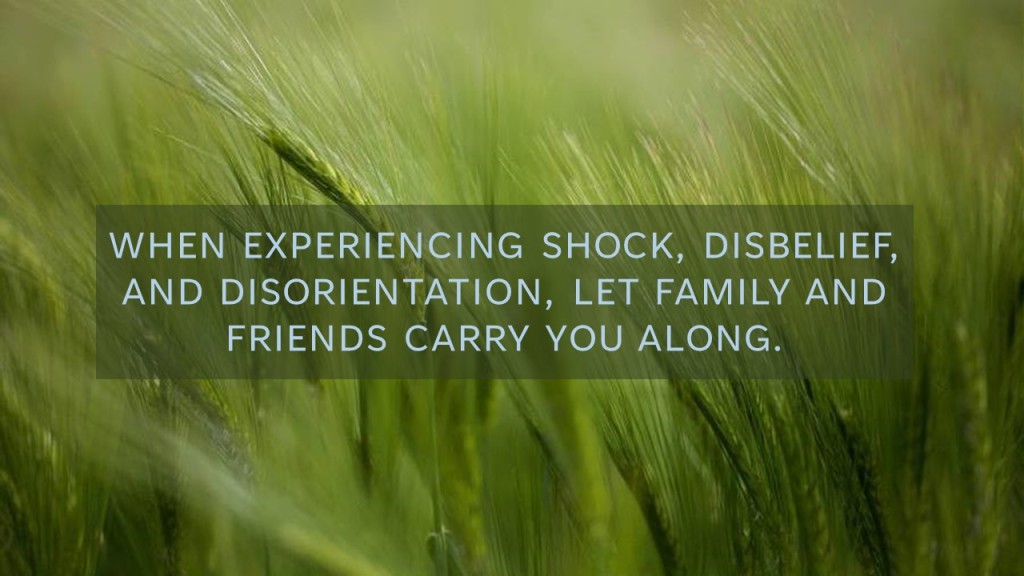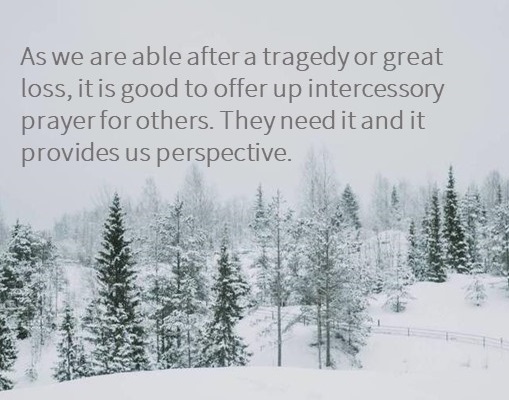The grace of lament is helping me to navigate this painful season of our lives and is also giving me a language to use in the face of widespread injustice and suffering in the world. It doesn’t minimalize or ignore the anguish but as we orient ourselves towards God and give voice to the pain we feel, his Spirit reminds of the eternal truths of God’s goodness and his steadfast love towards us.
Carolyn Madanat
Introduction
In a recent post Dona described how Carolyn Madanat was processing overwhelming grief from the sudden loss of her husband, Labib Madanat, in November 2021. At the time of Labib’s death, Carolyn had been recently ordained as a minister in the Anglican Church in England and was four months into her first post as a curate. As part of this initial apprenticeship she was assigned, as all curates are, to write reflections on significant events during her curacy and the impact on her prayer life and relationship with God. She shared this reflection with Dona and me. Though painful to read, it is just too insightful and redemptive not to share. With her permission and approval, we post it here.
I am no expert on the stages of grief or how trauma is processed, but Carolyn’s narrative of the months following Labib’s passing show both key waypoints and important routines that will help any Christian; both those suffering overwhelming loss or trauma, and friends and family walking alongside the sufferer. This journal is particularly helpful in showing how a grief-stricken heart and often exhausted mind can still use prayer to engage the Spirit; “reminding us of the eternal truths of God’s goodness and his steadfast love towards us.”
And so, again with her permission, I added text boxes to highlight those waypoints and insights.
Dave Eley
September 2022
________________________________
Defiant Hope in the Face of Overwhelming Loss
Carolyn Madanat
June 2022
Four and a half months into my curacy, my husband died suddenly whilst on a ministry trip to Iraq.
We received the devastating news by telephone call: thirty minutes after hearing that he had experienced a seizure and was unconscious, a follow-up call came telling us that he had died. I had no time to begin to process what had happened as I had to make immediate plans to travel to Jordan with our five children, where Labib’s family were arranging to repatriate his body from Najaf to Amman. Once there, we were drawn into the communal grief and mourning of family, church, and friends as we prayed and waited for his body to be released and flown to us. The funeral was held hours after his arrival; I was still in a state of shock and disbelief but Labib’s colleagues and family, in the midst of their own grief, carried the burden of planning and leading the service.
In the first few weeks I felt incredibly disorientated. For the ten days that we were in Jordan there was an established ritual of gathering with the extended family each day from morning to late night, receiving people who came to give condolences. It was emotionally and physically exhausting, trying to give comfort as much as receive it, but it provided a structure for our time and interactions with people. The constant stream of calls and messages brought assurance that many were praying for us, and this carried us through the early days when we could not form prayers for ourselves.
The importance of receiving counsel, even leadership, in deciding on a way forward.
Back in England, as per the norm, people gave us ‘space’ and showed kindness and solidarity in a very different way: cards instead of conversation, food left on the doorstep instead of shared communal meals. It was my culture, but I felt very alone and found myself trying to initiate contact with people so that I could explain why I needed them to keep speaking to me!
In retrospect, I really needed pastoral leadership; I didn’t want to be left to decide if and when I should return to work and ministry. I know that the intention was to not make assumptions about what would be best for me, but I was exhausted and needed someone else to tell me to take time to rest and recover. In the end it was my prayer triplet and a trusted family friend and counsellor who stepped into that role and helped me navigate those early days.
Stillness and quiet were not my friends. At first, I found it very hard to even read Scripture without crying, but I turned to the psalms that Labib and I had read together so many times and they became my prayers; I didn’t have to find my own words to say because the psalmists had done it for me. I found the discipline of a daily quiet time very hard to maintain, so I took long walks and trusted that God was with me and that He was somehow ministering to me. I honestly didn’t feel it particularly, but deep down I knew and believed it was so.

Advent began soon after we returned to the UK and I remember lighting the first candle, Hope, as an act of defiance against the enemy who had stolen from our family. There was something comforting in the symbolism and ritual of lighting the candles each night. What had previously been a fun family activity, took on new significance. However I felt, I wanted to declare -in this small way- that I still had faith in God whose light shines in the darkness and cannot be overcome by it. The ‘waiting’ of Advent resonated with me in a new way: it wasn’t about counting down to a day or a week of celebrations but anticipating the day when Jesus would return and make all things right, forever.

As I returned to work in the New Year, the daily routine of prayer with the staff team was an act of obedience. Often, I didn’t feel like praying but the familiar words of the morning prayer liturgy allowed me to participate even when my brain fog made it hard for me to concentrate for long. My prayer requests were for very practical things, usually focused on the needs of our children– for comfort, for the ability to sleep, for strength to get through each day, for stamina to sit through school and college classes; many prayers were answered, including some I hadn’t voiced out loud. I didn’t talk to God much about my own feelings of grief and exhaustion, but I knew that he knew, and that was enough. Throughout this time, I prayed weekly with the members of my prayer triplet which was a lifeline; other friends and colleagues messaged with offers of help and the promise of ongoing prayer. It was one way that I experienced what it means to be part of the Body of Christ and to belong to one another. God was taking care of me through his people, through my people.

Not long after Labib’s death, a friend who had also been bereaved sent me some books, including one on lament. As I read the book, I knew that I accepted it all in principle, but realised that it was the first time that I had actually thought about and experienced what it means to lament. I wanted to be able to express my sadness, disappointment and even anger, but without falling into despair. Mark Vroegop talks about a four-step process that God leads us through in grief and lament:
……to turn, to complain, to ask, and to trust. Importantly, the first move has to be a physical orientation towards God and not away from him.
Mark Vroegop[1]
I still struggled with the idea of complaining to God. Having spent so much time with Iraqi and Syrian refugees in Jordan and hearing their stories of losing multiple family members and friends, not to mention homes and livelihoods, I didn’t see how my loss could be compared to theirs. What I’ve started to realise is that lament isn’t about whether my suffering is sufficiently bad enough to warrant a complaint to God. Instead, it’s declaring, with God, that all is not right in the world and knowing that this grieves him too, while remembering that sickness, death, pain, and injustice do not have the final word.
As Vroegop says, “Lament is rooted in what we believe. It is a prayer loaded with theology. Christians affirm that the world is broken, God is powerful, and He will be faithful.”[2]
Through the year, I have become more aware of the role of lament in both my individual prayers and our corporate prayers as a church family. When the war broke out in Ukraine, when an earthquake killed hundreds in Afghanistan, my intercessions have included a strong note of indignation at the injustices that are being suffered in a world that is under the curse of sin and death; I’ve been led to boldly ask God to intervene as only he can, affirming that he is mighty and able to work good for his people. I’ve come to realise that part of our calling as God’s people is to lament the state of our world and to call on God to act.
I had to spend a few days in Jerusalem, sorting some of Labib’s paperwork, and connected with old friends and colleagues who shared the challenges they were facing in their own ministries. I found myself increasingly praying and interceding for them – for reconciliation and unity between church members and leaders, for Bible translation work, for the Gospel to touch the hearts of the non-Christian majority. Although I couldn’t step into the huge void that Labib had left as a leader in the region, I felt as though God was rekindling the love and concern I had held for the people of the Middle East for so many years when we lived and ministered among them. It was an invitation to stay connected to what God was still doing in and through brothers and sisters there, even if Labib was no longer with us. Since the visit, I have been interceding more often for ministers and ministries in that region that God has put on my heart. It has helped me to keep my own difficulties in perspective and to see the bigger picture of what God is doing in the world.
Over Lent I put together material for a Lent course for St Paul’s and the theme was the spiritual practices of solitude and silence. These are disciplines that even prior to Labib’s death I have found quite challenging. I am someone who works well as part of a team, and this includes praying with other people; my night-time prayer routine with Labib was an important part of our shared life together. As mentioned earlier, I’ve found quiet times particularly difficult in this season and the thought of sitting in silence with God just listening and waiting has felt quite unattainable, not least because poor sleep at night means I have a tendency to fall asleep if I sit still for too long. During the course we reflected on the story of Elijah in 1 Kings 19 and how he reached a point where, before he could even hear God, he needed time to recover from the traumatic experience he’d just been through; God ministered to him by providing food and the opportunity to rest.
It was very helpful for me to be reminded that sometimes we can be in a place where we just need to trust God and let him take care of our physical needs so that we will then be able to hear him speak. The combination of experiencing a sudden trauma and then needing to carry the emotional and practical needs of the family, in addition to returning to pastoral work, had left me feeling depleted after a couple of months. The Lent reflections released me from feeling guilty about not being able to sustain my quiet devotional times and allowed me to rest in God and trust him to carry me through that season. As my sleeping patterns have improved I’ve had more capacity for silence and individual prayer, although I still favour prayer walking over sitting.
The final reflection I have on how my prayer life and relationship with God has been shaped over this last year, following the loss of Labib, relates to Passion week and particularly Holy Saturday. Coming from a ‘low-church’ tradition, my engagement with Passion week has primarily focused on Good Friday’s Hour at the Cross and then the joy and celebration of Resurrection Sunday. This year, I co-led the Hour at the Cross service and found it very moving; I also had the joy of baptising a new believer on Sunday morning – as part of our Easter family celebration service. However, what resonated with me for perhaps the first time was the poignancy of Easter Saturday. Up until this year, it’s simply been an in-between day that I’ve not thought too much about, but it felt very different this time around. Holy Saturday seemed to encompass all that we had been experiencing over the previous months, which was the feeling of being somehow suspended between two worlds: one of overwhelming loss and one of defiant hope. A friend sent me a poem that finally put into words everything that I felt but hadn’t been able to express. It wasn’t that I suddenly had answers to everything, but I had a space to hold the questions:
‘Holy Saturdays are the days in between what has been laid to rest and what we are doing our best to hope will still rise … Holy Saturdays are brutally honest days when our hope and grief, equally matched, wrestle it out’[3]
Judy Peterson
I realized that trust in God’s goodness and feelings of sadness are not mutually exclusive; lament is a path to praise that travels through disappointment and pain, and being okay with not knowing everything. It is accepting the co-existence of grief and hope; mourning what has been lost yet grateful for what remains. Part of prayer, I have realized, is surrendering to God the questions we don’t have answers for and having the assurance that these questions are in safe hands. It is having enough confidence in God’s goodness and steadfast love towards us that we don’t need to settle for ‘glib’ answers to those questions.

I have already seen the importance of this in pastoral situations where there is a great deal of suffering and hardship, and the inevitable questions that accompany it deserve to be heard and held respectfully. Instead of trying to scramble for answers to ‘ease’ the pain, for myself or others, I want to simply acknowledge the presence of God in our pain and his promise to transform it and redeem it for our good and his glory, if we allow him to. Vroegop writes that: ‘the gospel empowers the followers of Jesus to enter the dark moments of people’s lives. Those who know the story of hope and who believe in God’s goodness can be conduits of his grace’.[4]
The grace of lament is helping me to navigate this painful season of our lives and is also giving me a language to use in the face of widespread injustice and suffering in the world. It doesn’t minimalise or ignore the anguish but as we orient ourselves towards God and give voice to the pain we feel, his Spirit reminds of the eternal truths of God’s goodness and his steadfast love towards us.
Bibliography and references
Jenae, D, When Mountains Crumble, Moody Publishers, 2022.
Rolheiser, R, Sacred Fire, Crown Publishing, 2014.
Vroegop, M, Dark Clouds, Deep Mercy, Crossway publishing, 2019.
[1] Vroegop, p29
[2] Vroegop, p26
[3] Excerpt from ‘Holy Saturday’ by Judy Peterson
[4] Vroegop, p 194


